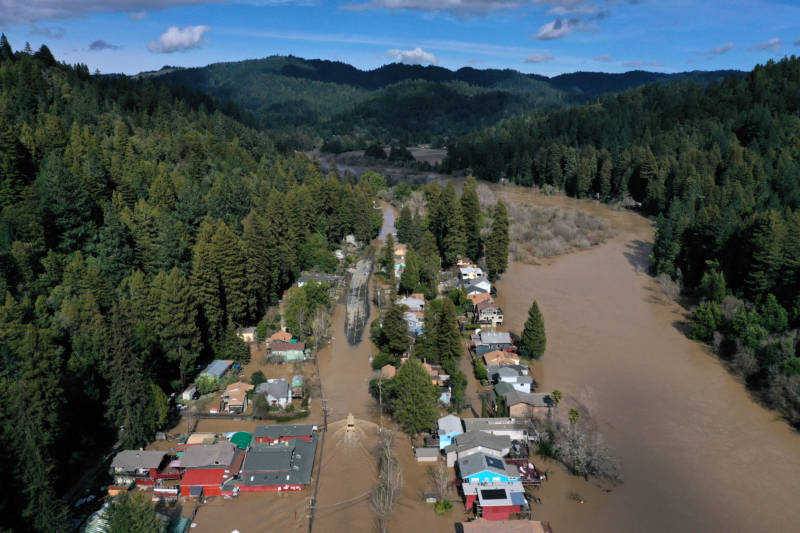One month after destructive flooding tore through Sonoma County, residents are waiting for the state to decide if it will ask the federal government for a disaster declaration — a move that they say can bring them much-needed financial aid.
Sonoma County Still Hoping Flooding Will Be Declared Federal Disaster

Funding to help with the recovery has come in from the county and the state, but not the federal government. The Governor’s Office of Emergency Services said it’s still assessing the damage, which will help it determine whether to seek a federal disaster declaration.
If the flooding is declared such a disaster, people could apply for individual aid from FEMA. That money could go toward temporary housing, home repairs or expenses incurred due to the disaster, like child care.
“Getting assistance from FEMA would be huge,” Sonoma County Supervisor Lynda Hopkins said in mid-March, as she stood next to a pile of water-logged debris outside a home in her neighborhood.
“People are hurting. Some people lost their homes and they also lost their jobs because the small business that they worked for closed up shop, and so these folks have literally no way to make ends meet,” she added. “They can't even afford to go to the grocery store, let alone provide first-last deposit for a new rental.”
In late February, an atmospheric river pummeled the area, causing the Russian River to break its banks and reach a high of nearly 46 feet — the highest in more than 20 years — filling the stores and homes in downtown Guerneville with muddy water. The town of Monte Rio was also cut off by flooded roads.
“It's taking a long time,” Hopkins said. “And we sort of feel like the longer we wait, the less likely it is to happen.”
In Guerneville, residents don’t have a lot to fall back on: The economy is fueled by summer tourism, and in the winter, they rely mainly on summer savings.
The floods came at a time when people were least financially prepared, which is what happened to Tom Orr. Today, his apartment and the restaurant where he worked are gone; he is staying with family in Seattle while he picks up the pieces.
If he got FEMA aid, Orr said he could get a permanent roof over his head again.
“I don’t have anything backed up in savings,” he said. “It takes $5,000 to move into a place that I just don’t have.”